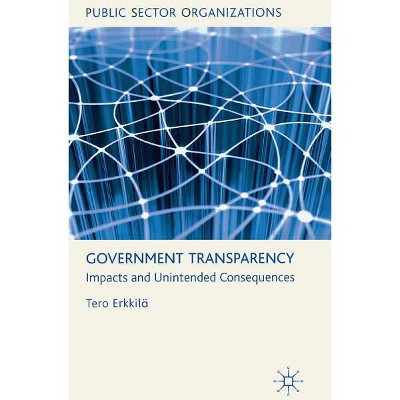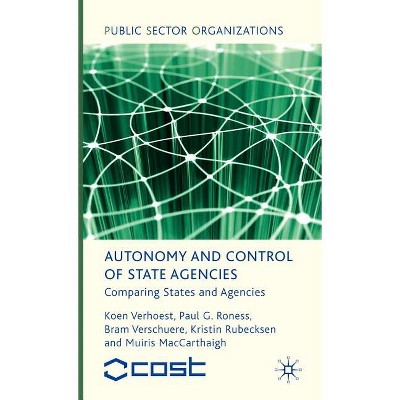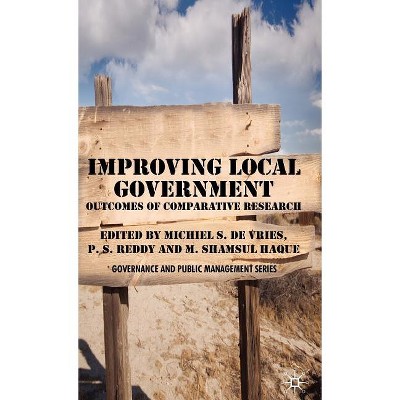Sponsored

Political Struggles and the Forging of Autonomous Government Agencies - (Public Sector Organizations) by Kenneth A Loparo (Hardcover)
In Stock
Sponsored
About this item
Highlights
- After a decade of foreign policy integration Europe faces multipolarity, being internally divided and externally weak.
- About the Author: CRISTOPHER BALLINAS VALDÉS is Associate Professor in Public Policy, at the Instituto Tecnológico Autónomo de México, Mexico City, Mexico.
- 255 Pages
- Political Science, Public Policy
- Series Name: Public Sector Organizations
Description
Book Synopsis
After a decade of foreign policy integration Europe faces multipolarity, being internally divided and externally weak. Toje argues in this paperback edition that due to the lack of a workable decisionmaking mechanism the EU is destined to play the limited but distinct role of a small power in global politics.Review Quotes
"'Anyone who thinks the rise of autonomous government agencies is just the result of neoliberal economic fashions should read this book. Dr. Ballinas Valdés offers a penetrating analysis of Mexican bureaucratic politics, but also gives us a more general account of how to understand bureaucratic autonomy and what shapes it."
- Christopher Hood, Gladstone Professor of Government and Fellow of All Souls College Oxford, UK
"This book is an essential corrective to simplistic theories about the genesis and role of autonomous agencies. Ballinas Valdés explores the struggle among politicians and bureaucrats and shows how it generates great variety in the structure of agencies. Political conflict produces results that frequently confound the original intentions of the agencies' promoters."
- Alasdair S. Roberts, Rappaport Professor of Law and Public Policy, Suffolk University Law School, USA
"This excellent study on the surge of the regulatory state in Mexico in recent decades carries out an in-depth analysis of the role of domestic forces involved in regulatory agentification, beyond one-dimensional arguments. Bureaucrats and politicians' interests and perceptions are perfectly illuminated; making clear that their policy preferences are shaped by institutional designs, but also that their major struggles were largely related to pursuing institutional change, as a way to affect public policies more permanently."
- Jacint Jordana, Professor of Political Science, Universitat Pompeu Fabra and Director, Institut Barcelona d'Estudis Internacionals, Spain
About the Author
CRISTOPHER BALLINAS VALDÉS is Associate Professor in Public Policy, at the Instituto Tecnológico Autónomo de México, Mexico City, Mexico. He specialises in the study of executive government and the effects of politics and institutions on policy outcomes - the politics of policies. He has also worked as Senior Adviser to three deputy ministers at the central government in Mexico and possesses extensive high-level experience in policy design and implementation.Shipping details
Return details
Frequently bought together
Trending Non-Fiction

















